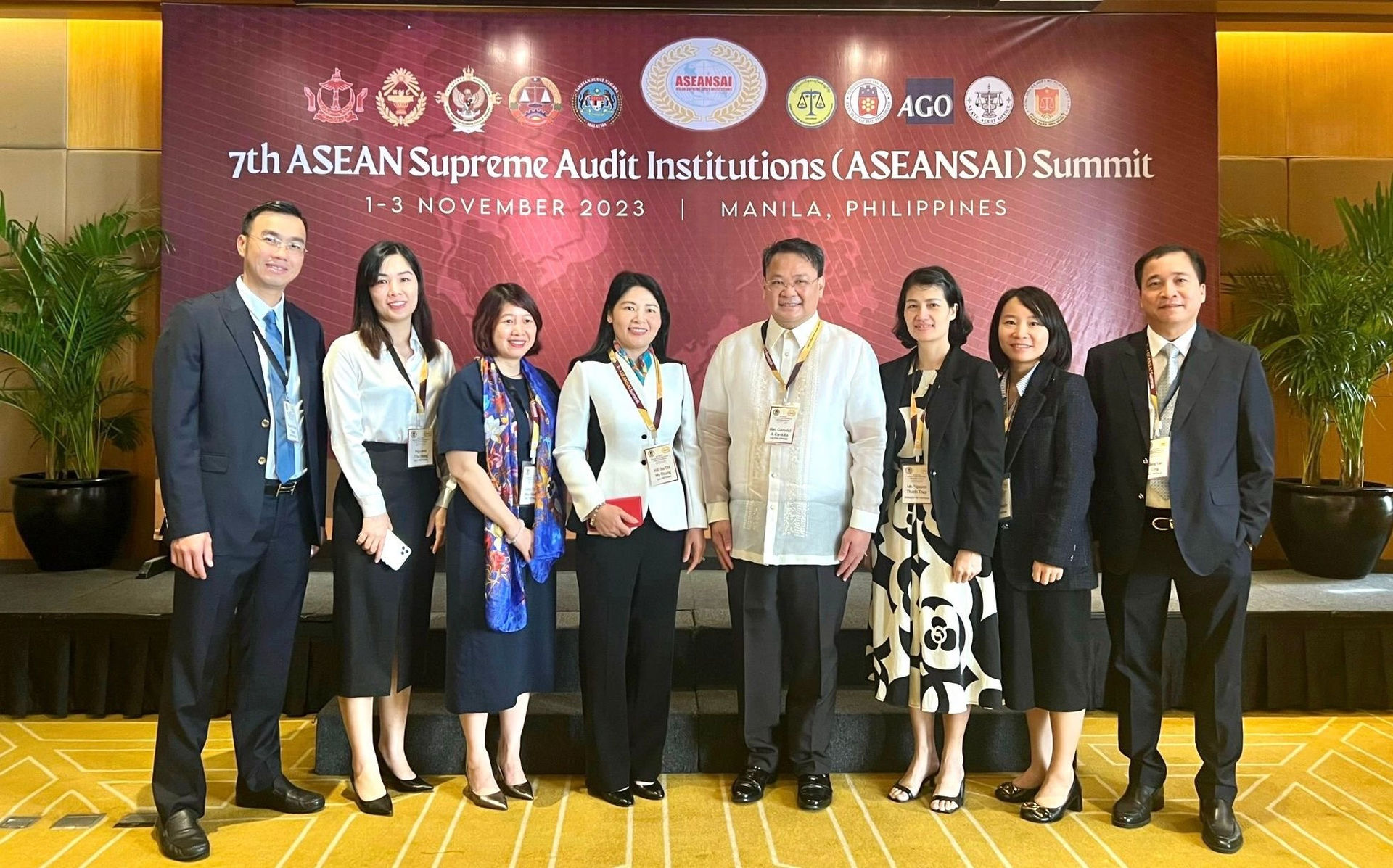
(sav.gov.vn) - Deputy Auditor General Hà Thy My Dung attended the official bilateral meeting with the Chairman of the Philippine Commission on Audit and participated in discussions with eight other Supreme Audit Institutions’s (SAI) leaders on the sidelines of the 7th ASEANSAI Assembly.
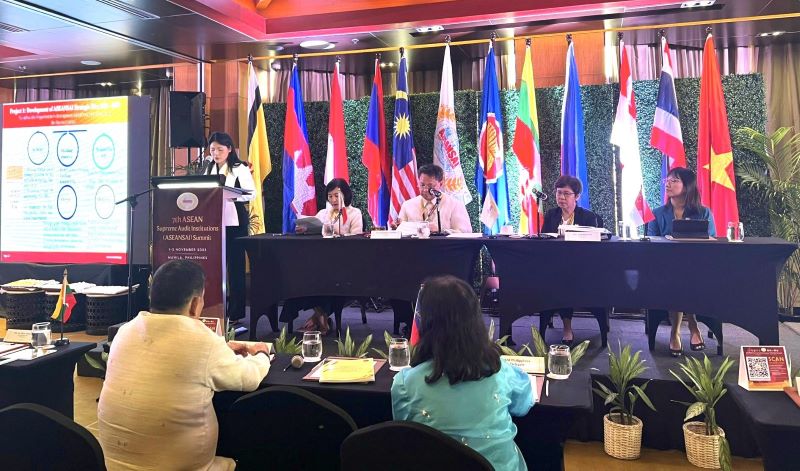
(sav.gov.vn)- Vietnam delegation led by Deputy State Auditor General Ha Thi My Dung attended the 7th ASEANSAI Summit held in Manila, the Philippines on 2 November. The Summit concluded successfully with various significant agendas addressed and approved.
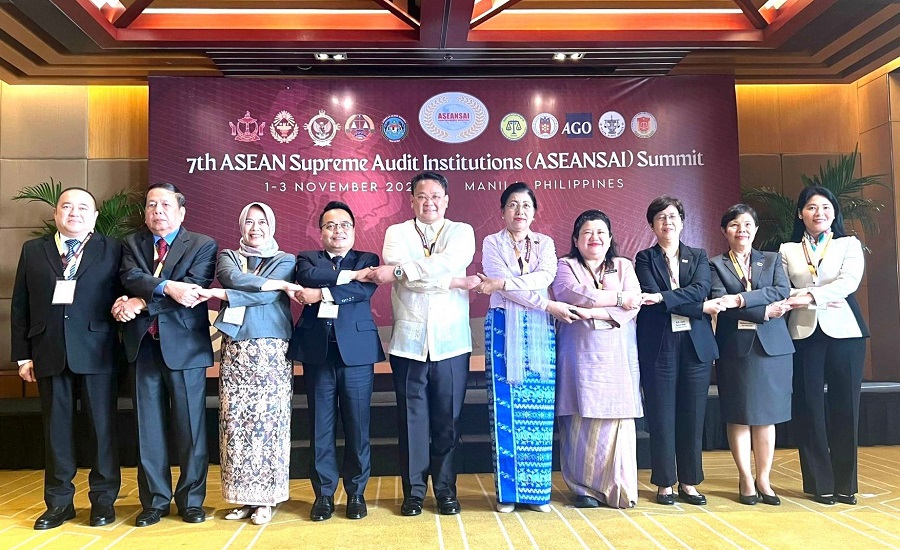
(sav.gov.vn) - A delegation of the State Audit of Vietnam (SAV) led by Deputy State Auditor General Ha Thi My Dung on November 2 attended the opening ceremony of the 7th ASEAN Supreme Audit Institutions (ASEANSAI) Summit, held in Manila, the Philippines.
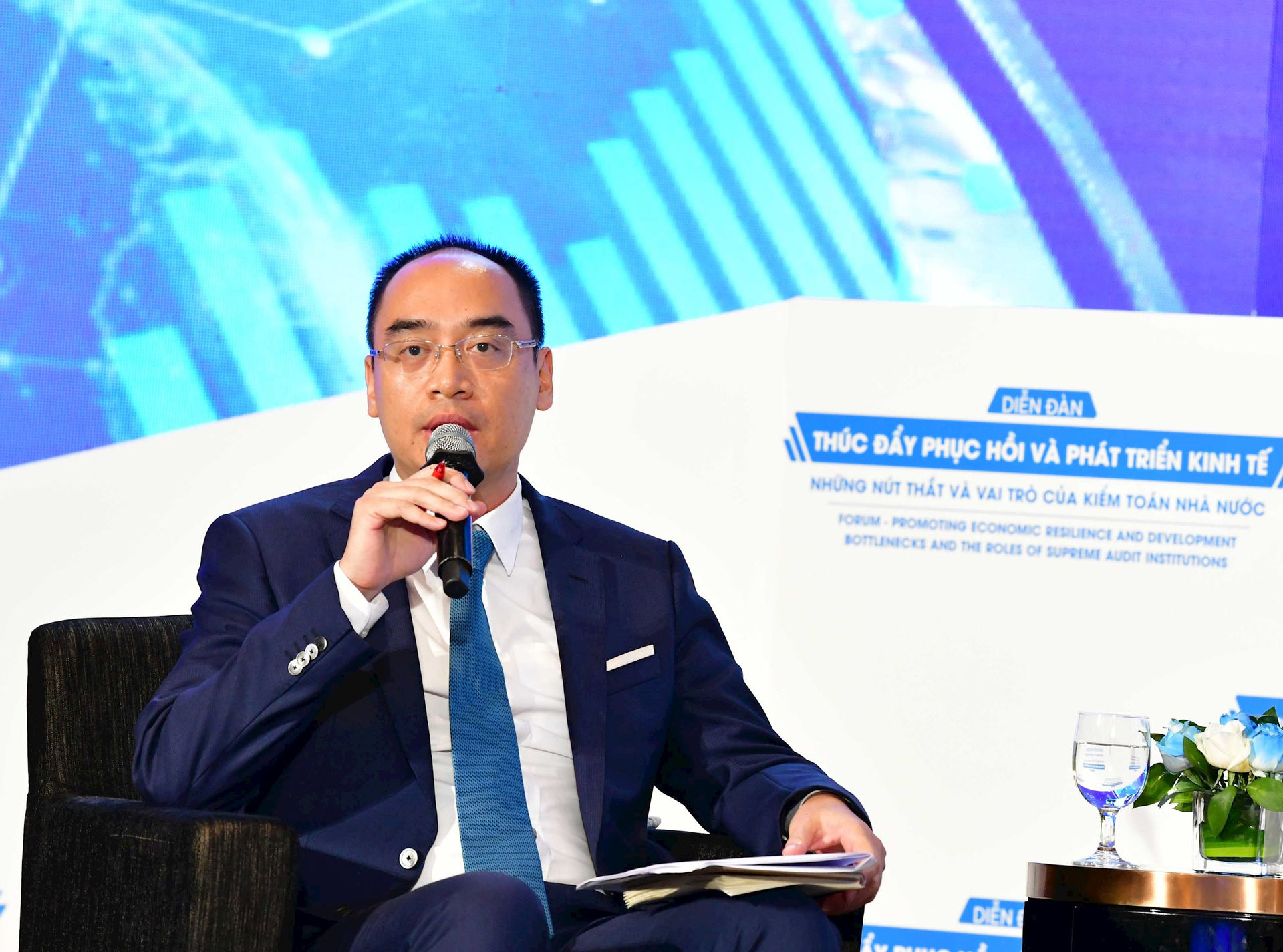
With three thematic workshops and one plenary session, the Forum “Promoting economic resilience - bottlenecks and the role of the State Audit Office of Viet Nam (SAV)” was a resounding success, thereby affirming SAV's crucial role and position, showcased its close cooperation with the National Assembly, the Government, ministries, branches and localities, and highlighted its commitment to resolving bottlenecks and promoting economic resilience and development.
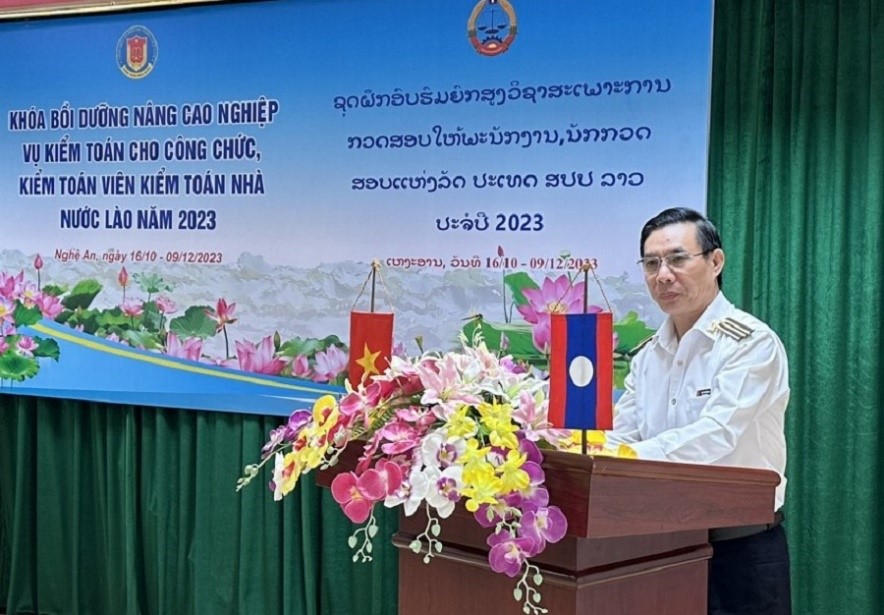
On the morning of October 16, 2023, the Audit Training Insitute held the opening ceremony of "Auditing skills training course for civil servants and auditors of SAO Laos in 2023" at Cua Lo Training Branch, Nghe An province.
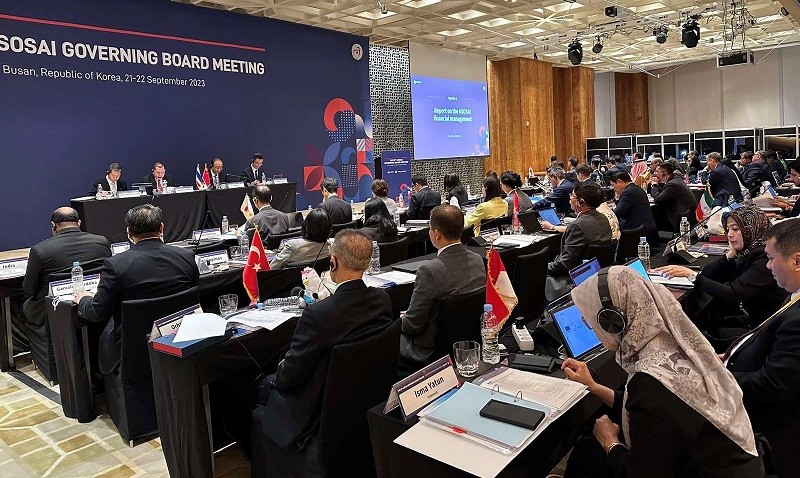
On September 21, 2023 in Busan, Korea, the delegation from the State Audit Office of Viet Nam (SAV), led by Deputy State Auditor General Nguyen Tuan Anh, attended the 59th Governing Board meeting of the Asian Organisation of Supreme Audit Institutions (ASOSAI).
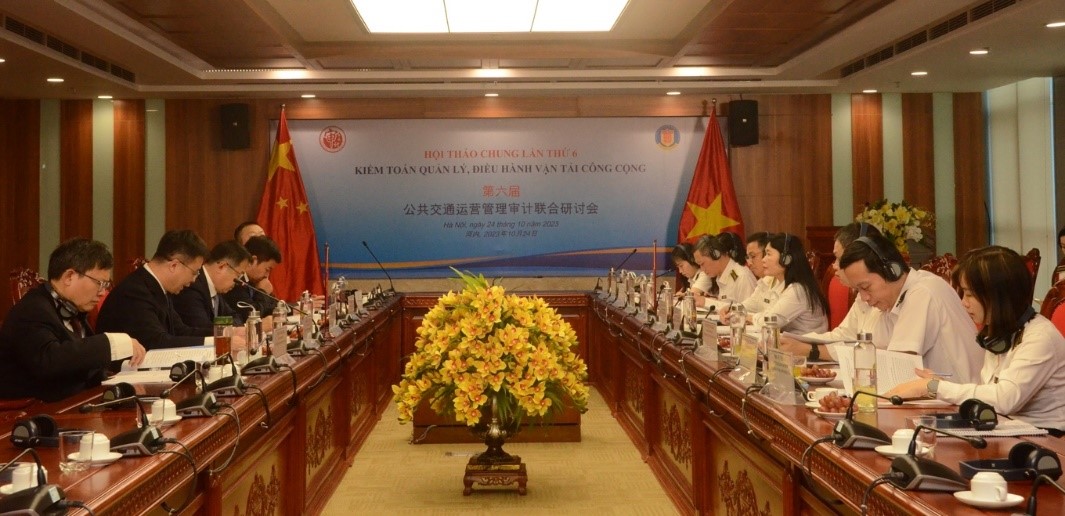
On October 24th, in Ha Noi, the 6th joint workshop on "Audit of public transport management and operation" was co-chaired by Deputy Auditor General of Vietnam Ha Thi My Dzung and Deputy Auditor General of China HAO Shuchen between the State Audit Office of Viet Nam (SAV) and the National Audit Office of China (CNAO).
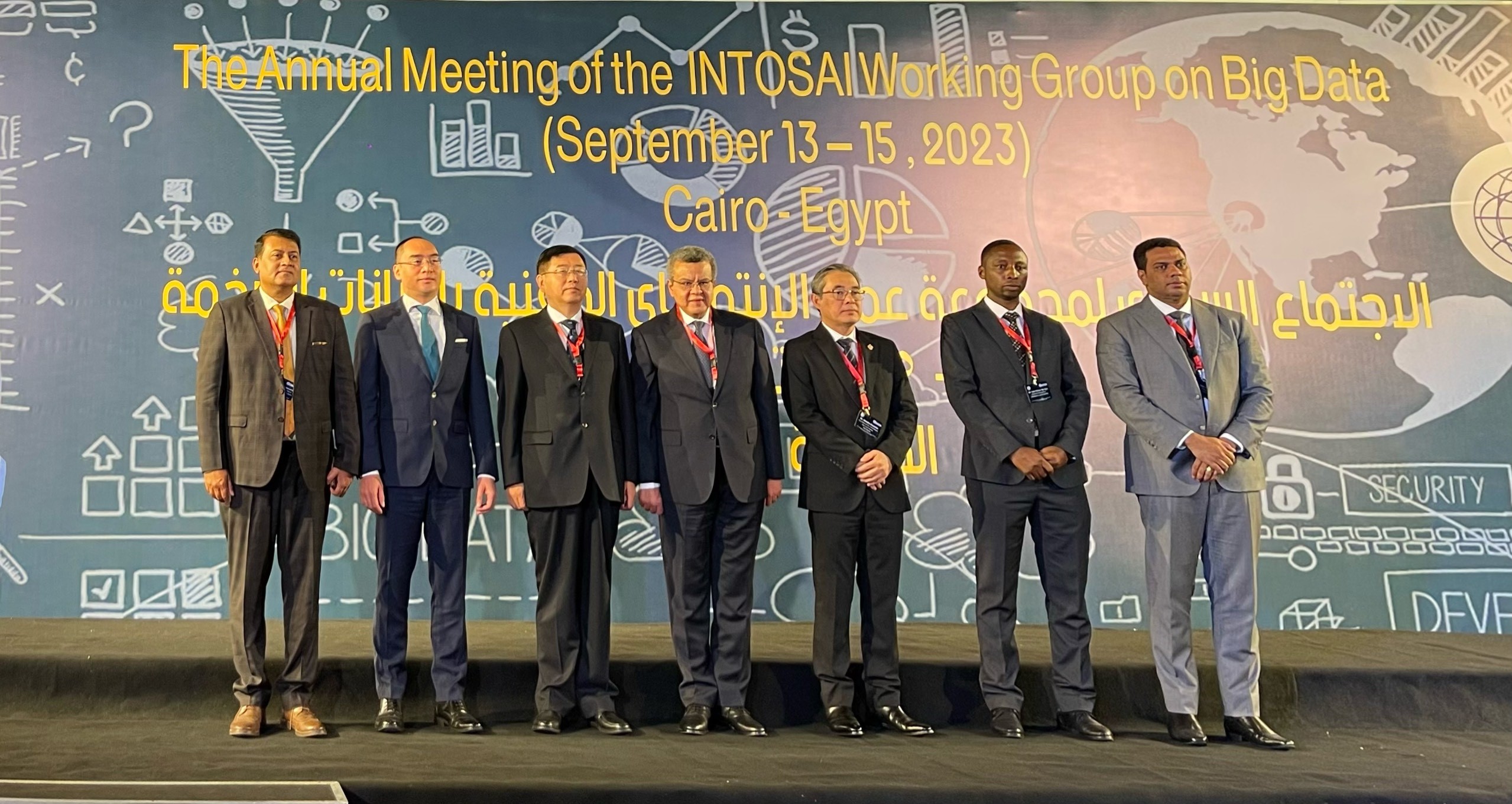
On September 13, the delegation from the State Audit of Viet Nam (SAV) led by Deputy Auditor-General Bui Quoc Dzung attended the 7th meeting of the Big Data Working Group of the International Organization of Supreme Audit Institutions (INTOSAI WGBD), held in the capital city of Cairo (Egypt).
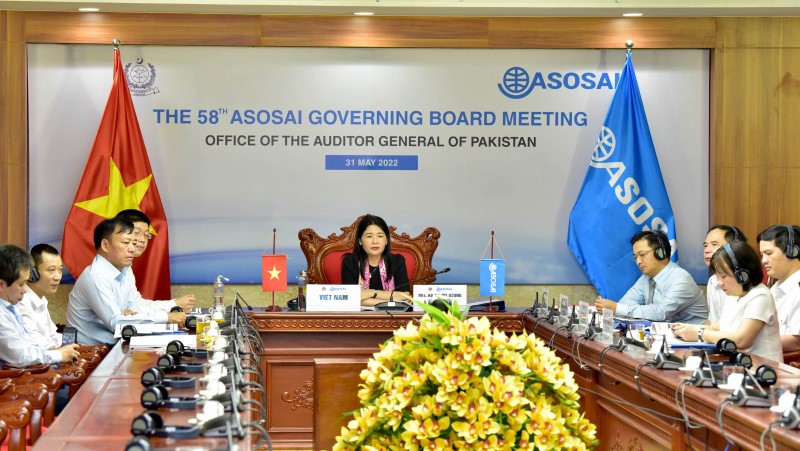
From September 19-22, Deputy State Auditor General Nguyen Tuan Anh led the delegation of the State Audit Office of Viet Nam (SAV) to attend the 59th Governing Board meeting of the Asian Organisation of Supreme Audit Institutions (ASOSAI), to be held in Korea.
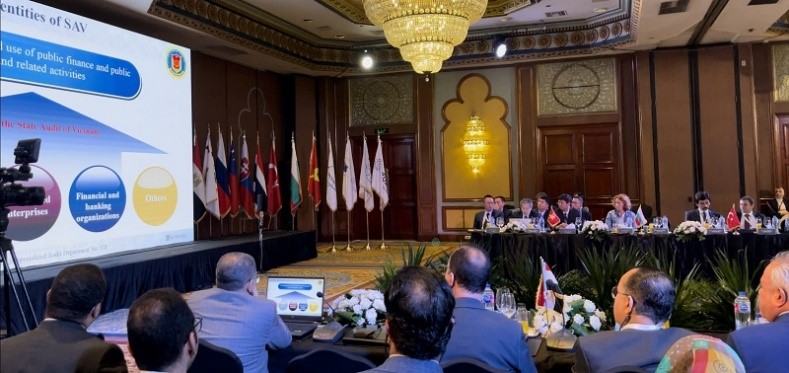
On the morning of September 14th, a delegation from the State Audit Office of Viet Nam (SAV), led by Deputy Auditor-General Bui Quoc Dzung continued their participation in the meeting of the INTOSAI WGBD in the capital city of Cairo, Egypt.